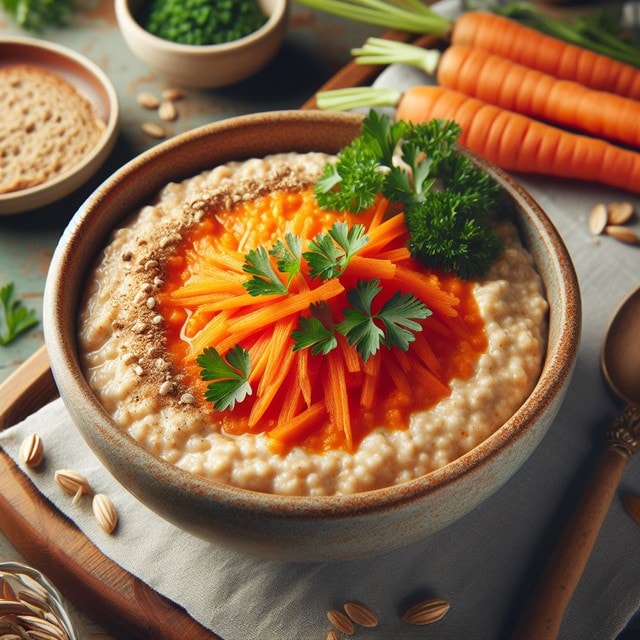Nutrition for children with digestive disorders
One of the main causes of digestive disorders is an inappropriate diet. Therefore, adjusting the diet plays an important role in preventing and treating digestive disorders in children.
1. The importance of diet for children with digestive disorders
It is a common disease that greatly affects children's health. The cause is that the digestive system and immune system of young children, especially infants and children under 2 years old, are still weak, making children susceptible to bacteria, viruses, and parasites that cause gastrointestinal diseases.
In addition, poor hygiene, prolonged use of antibiotics, especially an unreasonable diet or food allergies, are also important causes of digestive disorders in children.
According to nutrition experts, giving children solid foods too early, feeding them foods that are difficult to digest, high in protein, high in fat, eating at the wrong time, drinking milk that is not age-appropriate, not ensuring food hygiene and safety, etc. are common mistakes that lead to digestive disorders in children.
According to Dr. Phan Bich Nga, Director of the Children's Nutrition Consultation and Examination Center, National Institute of Nutrition, most children with digestive problems who come to the doctor are mainly due to mistakes in their diet.
The most common time for children to have digestive problems is when they start eating solid foods. Or some children have this problem because they are too restrictive; do not eat a balanced diet with lots of fruits and vegetables, and limit fat; or eat a lot of fat but are lazy to eat fruits and vegetables...
Therefore, experts recommend that to prevent digestive disorders, it is necessary to take care of children's nutrition properly: Children need to be breastfed exclusively for the first 6 months, and when they start eating solid foods, they need to supplement with meat, vegetables, oil, etc.; Follow the principle of eating cooked food and boiled water, and wash hands regularly to avoid infection; Avoid unsafe food and restaurants, and do not let children eat fast food...

2. Essential nutrients for children with digestive disorders
Regarding the diet for children with digestive disorders, nutritionists advise parents to prioritize foods that are easy to digest and absorb to provide enough energy and help children recover quickly.
According to the American Academy of Pediatrics (AAP), children with digestive disorders need to pay attention to the following nutritional principles:
Nutritious, soft, easy to digest food
To supplement nutrition, children need to eat nutritious foods, processed in liquid, soft, easy-to-digest form such as porridge: chicken porridge, lean pork porridge cooked with carrots, potatoes, pumpkin, vegetables... to help children easily digest, absorb and not irritate the digestive tract mucosa.
Add water
Children with digestive disorders such as vomiting, diarrhea, etc. need more water than usual to compensate for the amount of fluid lost through stool and vomiting. Children should drink liquids such as: soup, porridge, fruit juice (no added sugar or very little added sugar), fresh coconut water, boiled water, etc.
You can use roasted rice water, rice water, salt porridge water, sugar porridge, carrot soup... which are very good to replenish water and electrolytes for diarrhea. If your child is nauseous or vomiting, you should give them some foods that help relieve nausea such as: clear broth, chicken broth or vegetable broth...
Note:It is necessary to limit children's intake of foods that cause irritation and can damage the digestive tract such as foods high in fat and sugar; undercooked, unsafe foods; foods that cause bloating and flatulence; coffee, carbonated soft drinks, etc.
Additional
Probiotics are beneficial bacteria that help improve your child's digestive system. You can give your child yogurt or probiotic supplements as directed by your doctor.
Notes on food preparation and feeding children
Wash your hands before preparing and feeding your child. Food should be prepared in a soft, easy-to-digest form such as steaming, boiling, stewing, etc.; Avoid frying, stir-frying, and cooking with a lot of oil; Cut food into small pieces so that it is easy for your child to chew and swallow; Season food lightly, do not add too many spices. Meals should be divided into several meals a day. Feed your child a little at a time, do not force your child to eat too much. Encourage your child to drink plenty of water. Monitor your child's condition after each meal.
3. Suggest some good foods for children with digestive disorders
Carrot soup
Ingredients: 300g carrots, 30g sugar, enough salt. How to prepare: Wash carrots, chop, cook and then put in a blender. Put the pureed carrots in a pot, add enough water, add sugar and salt, boil again, let cool and eat gradually.
Lean meat and carrot porridge
Ingredients: 50g chicken or lean pork, 100g rice, 1/2 carrot, enough spices. How to cook: Wash the rice, put it in a pot, add water and cook until the rice grains bloom. Peel the carrots, dice them, and put them in the pot to cook with the porridge. Mince the chicken or pork, marinate with spices for 15 minutes. Put the meat in the porridge pot, boil again for about 5 minutes, season and serve.
Pork, carrot, potato porridge
Ingredients: 100g of rice, 50g of potatoes, 50g of carrots, 50g of lean pork, and enough spices. How to cook: Wash the rice, put it in a pot, add water and cook until the rice grains bloom. Chop the carrots and potatoes and put them in the pot to cook with the porridge. Mince the pork and marinate with spices for 15 minutes. When the porridge is cooked, add the meat, boil again for about 5 minutes and it is ready to eat.

Chicken and pumpkin porridge
Ingredients: 100g of rice, 50g of chicken, 50g of pumpkin, enough spices. How to cook: Wash the rice, put it in a pot, add water and cook until the rice grains bloom. Mince the chicken, marinate with spices for 15 minutes. Slice the pumpkin, steam until cooked, mash or chop it and put it in the pot to cook with the porridge until soft. When the porridge is soft, add the chicken, stir well, boil for another 5 minutes, season and serve.
Yogurt
Yogurt is a food that is especially good for intestinal health. Yogurt provides the body with a large amount of beneficial bacteria that help protect the digestive system and improve resistance.
Yogurt is easy to digest and increases nutrient absorption, so it is suitable for children with anorexia and digestive disorders. At the same time, it is also rich in protein, calcium and vitamin D, which are beneficial for children's health and development./.



